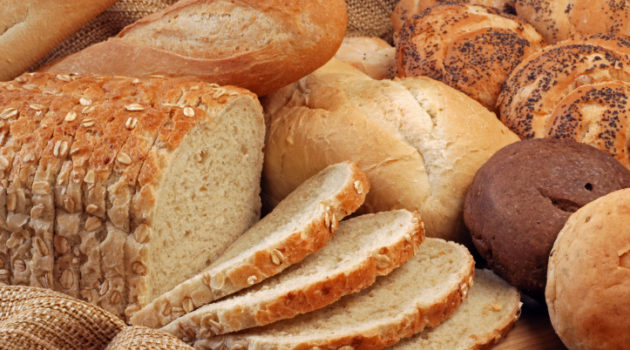
As a prevalent neurological disorder, Multiple sclerosis (MS) affects more than 400,000 American adults. A hefty number, I must say.
When MS occurs, the patient's immune system attacks the myelin (a protective sheath) that clothes the nerve cell axons. Such an attack triggers communication handicaps between the body and the brain.
MS can permanently damage the nerves and even the spinal cord.
Currently, MS is not curable. But don't be heartbroken yet. There are systematic therapies that concentrate on slowing the deterioration the disease provokes, accelerating the speed at which the patient recovers from such attacks.
You guessed right; diet plays a big part in such therapies. By eating – and avoiding – specific foods, you not only manage MS symptoms, but you can also reduce the frequency of flare-ups and slow the disease's progression.

Foods to eat when you have MS
Let me start by telling you the foods you should be drooling about if you have MS.
Whole Grains are an excellent choice!
MS symptoms can be amplified by eating meals with significant quantities of processed carbohydrates and refined flour. This is because this type of carbohydrate raises insulin levels.
Therefore, it makes sense to replace such floor and carbohydrates in your meal with whole grains. These grains will improve the stability of your glucose level, enhance fiber, and reduce fatigue.
These grains are not far-fetched. Readily available whole grains that you can start integrating into your diet today include quinoa, brown rice, and oat.
Get foods with wealthy Vitamin D content.
People with MS terribly need Vitamin D. Reports from the National Institute of Neurological Disorders and Stroke, having higher Vitamin D levels reduces your susceptibility to developing multiple sclerosis.
This is valid considering the bone nourishing capabilities of Vitamin D. A healthy intake of Vitamin D reduces the possibility of MS further deteriorating into osteoporosis. The latter – which is typified by porous and fragile bone tissues – is common in MS patients with mobility issues.
Foods like egg yolks, oily fish, beef liver, fortified dairy products have significant Vitamin D content. Of course, your job is even easier considering how delicious these foods are.
Unprocessed meats are healthier.
I know how hard it is to turn down that steamy hot dog or yummy sausage. But you will have to if you have MS.
Processed meats like ham, sausages, and hot dogs are unhealthy for people with MS. It serves you better making do with processed meat. Studies reveal that people who consume more unprocessed meat have lower chances of developing MS.
Would you mind more proof?
Collaborative research between The Australian National University and Curtin University found that people consuming unprocessed meat and a healthy Mediterranean diet have lower chances of developing MS.
The research analyzed data from 840 participants drawn from Australia. Findings reveal that people who consumed unprocessed red meat like pork, beef, and lamb, were less likely to develop the first CNS demyelination episode. This condition is known to precede multiple sclerosis.
Fresh Fruits help, too!
Patients experiencing multiple sclerosis are highly advised to improve their fresh fruit intake. Fresh fruits are a wealthy repertoire of vital antioxidants like anthocyanins and carotenoids.
Because oxidative stress exacerbates MS, these antioxidants, as supplied by these fruits, can slow the disease's progression.
Wait, fresh fruits have even more to offer. Essential micronutrients like magnesium are loaded in fresh fruits like papaya, banana, and berries.
Multiple sclerosis enjoys accelerated development when the patient suffers a shortage of magnesium. Fresh fruits – instead of supplements – are the healthier source of such magnesium.
It is not uncommon for people with MS to experience constipation. This can be relieved by ramping up your intake of fresh fruits reputed for their generous supply of fiber. This fiber content is effective in increasing motility, consequently reducing constipation.

Foods to Avoid when you have MS
Certainly, some foods are banished from your dining table if you have multiple sclerosis. Let me tell you about these bad guys.
You should avoid foods high in sugar
Foods with high refined sugar content are an unforgivable no-no for people with MS. It would help if you steered clear from beverages and sugar-sweetened foods.
Such foods trigger spikes in glucose levels. This is not good news for people with MS, as such glucose spikes can worsen the impairment levels, aggravating the symptoms.
An insightful study reveals that people who have MS and eat sugar-sweetened beverages were five times likelier to suffer acute impairment than those with reduced intake of such beverages.
Frightening, isn't it?
You can do without saturated fats
MS patients are highly discouraged from consuming foods with significant saturated fat content. A 1954 research led by Dr. Roy Swank sought to investigate the lower incidence of MS in coastal fishing towns (with higher fish intake) compared to mountainous regions with higher meat consumption.
Data from a 1954 study showed that a lower intake of saturated fat reasonably decreased one's chances of developing MS. The results consolidated the Swank diet's famed adoption (named after Dr.Roy Swank), which recommended a low-fat diet corroborated by increased fish (high in omega-3) and vegetable intake.
The research further shows that people who adopt a low saturated fat diet can experience up to 95% reduction in relapse rate over 3-5 years.
Reduce intake of ultra-processed foods
It is no revelation that ultra-processed foods are usually stacked with additives. This aims to extend the shelf-life of such foods, ultimately altering their flavor and color. For the manufacturers, this is not bad for business.
You may be curious about the bromance between MS and such additives. I will tell you.
Additives sabotage the efficiency of the immune system by destroying the intestinal muscles. With such immune balance triggered, autoimmune conditions like MS has a free pass into the body, speeding its progression.
Research attributes the climbing incidence of MS and other autoimmune conditions to disruptions in the intestine's tight junction permeability, no thanks to industrial food additives contained in ultra-processed foods.
Of course, the generality of foods we eat today undergoes one form of processing or another. However, it is wiser to go for whole and fresh foods more, or those entirely made of natural ingredients.









